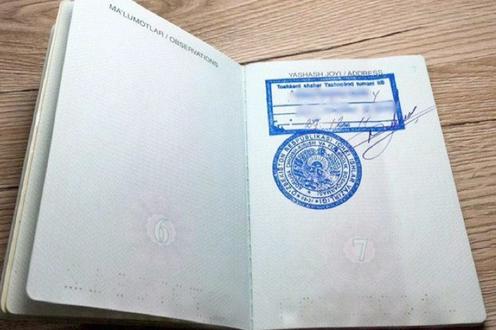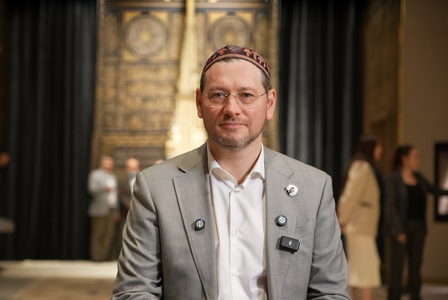The system of registering citizens by place of residence in Uzbekistan is to be amended and the very concept of “propiska” (residence permit) will be removed from legal texts. The new proposals for reform of the registration system have been made in a draft law drawn up and published by the country’s Development Strategy Centre (in Uzbek).
Inherited from the Soviet period, the propiska system legally ties a person to the address given in their passport. People are required to live and work in the city or town where they are registered, and children can only receive public education at the location recorded in their parents’ propiska. The practice is still used in other former Soviet countries too, but is regulated and applied particularly stringently in Tashkent, rendering it difficult to for Uzbeks registered outside of the capital to obtain a residence permit there, despite this contradicting provisions in the country’s constitution on the equality of all citizens. The system has also been criticised as detrimental to the Uzbek economy.
In 2017, some of these restrictions were relaxed, allowing those buying recently-built properties in Tashkent to obtain registration provided they pay a special tax to the government equivalent to 5% of the value of the property. In 2018, the abolition of the propiska system was included as part of the country’s reform plans for that year.
During a speech before parliament in January this year, Uzbek president Shavkat Mirziyoyev ordered the reform of the propiska system by 1 April 2020, referring to the need to take account of accepted global practice, human rights guarantees, and also public opinion. The interior ministry proposed a draft law for public discussion on 16 March, but it was sent back for further work following widespread critique as too restrictive.
The new draft law proposes to substitute the concept of “propiska” – as out of date – for registration at a permanent or temporary address. Registration will be possible at interior ministry offices and citizens’ service centres, or through the Unified Portal for interactive state services. The registration process will take one day.
It will also be possible to obtain some government services, such as state benefits, at a new place of registration automatically. New-born babies will receive permanent registration at the place of registration of the father or mother, and there are plans to remove the requirement for married couples to live together for one year before receiving permanent registration.
The maximum period for temporary registration is proposed to be extended, with the agreement of landlords, from one year to five years. And the maximum stay in Tashkent and the Tashkent region without permanent or temporary registration is to be increased from 10 to 15 days.
It will also be possible for people to obtain permanent registration for first and second-degree relatives not only at their own registered address but also at the addresses of other properties they own.
Discussion of the present draft bill is to continue until 11 April. It is unlikely to appease those calling for more extensive changes.










